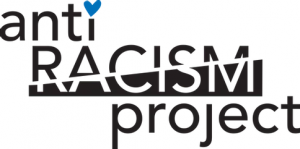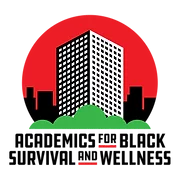Equity Resources
Centering Equity in this Moment
Read UNC CHER Director Giselle Corbie-Smith’s Centering Equity in this Moment for the center’s commitment to self-study on systems of oppression, using frameworks, praxes and theories that center the voices of those at the margins, and committing to authentic engagement and collective action for structural change.
HEALTH EQUITY
AMA Center for Health Equity
- Advancing Health Equity: A Guide to Language, Narrative and Concepts
- Making Visible Medicine’s Roots in Colonialism (Lancet book review)
National Academies
National Institute on Minority Health and Health Disparities (NIMHD)
PODCASTS
‘1619’ from The New York Times
An audio series on how slavery has transformed America, connecting past and present through the oldest form of storytelling.
LISTEN TO THE 1619 PODCASTRaising Equity Podcast
Raising Equity strives to support that work through elevating important conversations and consulting to help institutions and individuals.
LISTEN TO THE RAISING EQUITY PODCASTWe can create an equitable society. It will take intentional work and deep community and learning. It will take being adults who cultivate an equity mindset in themselves and kids.
– Dr. Kira Banks
PROJECTS
The Anti-Racism Project seeks to educate participants about how institutionalized racism, internalized racism and white privilege feed oppression. This communal experience culminates in the development of concrete social action plans for racial justice.
LEARN MORE ABOUT THE ANTI-RACISM PROJECTAcademics for Black Survival and Wellness
Academics for Black Survival and Wellness was organized by a group of Black counseling psychologists and their colleagues who practice Black allyship. Guided by a Black feminist frame, the group hopes to foster accountability and growth for non-Black people and enhance healing and wellness for Black people.
LEARN MORE ABOUT THE ABSWBlack Liberation and Empowerment
The Edge of Each Other’s Battles: The Vision of Audre Lorde
This powerful documentary is a moving tribute to legendary black lesbian feminist poet Audre Lorde (1934-1992). One of the most celebrated icons of feminism’s second wave, Lorde inspired several generations of activists with her riveting poetry, serving as a catalyst for change and uniting the communities of which she was a part: black arts and black liberation, women’s liberation, and lesbian and gay liberation.
The Black Women Who Pave the Way for This Moment
In cities across the United States, black activists are denouncing state-sanctioned violence and demanding radical changes to American policing. Black women leaders occupy a central role in these movements. Utilizing public spaces – such as city parks and streets – they are advocating for equality and justice and giving voice to historical truths many Americans find uncomfortable. From the activist Tamika Mallory, who spoke before a crowd of protesters in Minneapolis, to the Black Lives Matter co-founder Patrisse Cullors, who promoted the growing movement to defund the police, black women are at the forefront of the protests sparked by the police killings of George Floyd, Breonna Taylor and Tony McDade.
Let’s Get to the Root of Racial Injustice (TEDxRainier)
In this inspiring and powerful talk, Megan Ming Francis traces the root causes of our current racial climate to their core causes, debunking common misconceptions and calling out “fix-all” cures to a complex social problem
Megan Ming Francis is an Assistant Professor in the Department of Political Science at the University of Washington where she specializes in the study of American politics, race, and the development of constitutional law. She is particularly interested in the construction of rights and citizenship, black political activism, and the post-civil war South. Born and raised in Seattle, WA, she was educated at Garfield High School, Rice University in Houston and Princeton University, where she received her M.A. and her Ph.D. in Politics.
In her award winning book, Civil Rights and the Making of the Modern American State, Francis shows that the battle against lynching and mob violence in the first quarter of the 20th century was pivotal to the development of civil rights and the growth of federal court power. She is inspired by people who fight for justice – even when the end appears nowhere in sight.
Schomburg Center Black Liberation Reading List
For 95 years, the Schomburg Center for Research in Black Culture has preserved, protected, and fostered a greater understanding of the Black experience through its collections, exhibitions, programs and scholarship. In response to the uprisings across the globe demanding justice for Black lives, the Schomburg Center has created a Black Liberation Reading List. The 95 titles on the list represent books with a particular focus on books by Black authors and those whose papers the Schomburg stewards.
READING LISTS
Commitment to self-work (anti-racist work)
- Becoming an Anti-Racist Church: Journeying Toward Wholeness. Joseph Barndt, Fortress Press, 2011.
- Blind Spot: The Hidden Biases of Good People. Mahzarin Banaji & Anthony Greenwald. Delacorte Press. 2013.
- Disrupting White Supremacy from Within: White People on What We Need To Do. Jennifer Harvey and Karin Case (Eds.), Pilgrim Press, 2004.
- The Emperor Has No Clothes: Teaching About Race and Racism to People who Don’t Want to Know. Tema Okun. Information Age Publishing, 2010.
- How to Be An Antiracist. Ibram X. Kendi. One World, 2019.
- Memoir of a Race Traitor. Mab Segrest, Boston: South End Press, 1994.
- Towards the “Other America”: Anti-Racist Resources for White People Taking Action for Black Lives Matter. Chris Crass, 2015.
- Uprooting Racism: How White People Can Work for Racial Justice. Paul Kivel. Philadelphia: New Society Publishers, 1995.
- White Fragility. Robin D’Angelo. Beacon Press, 2018.
- White Privilege: Unpacking the Invisible Knapsack. Peggy McIntosh. Independent School, Winter 1990.
- Whitewashing Race: The Myth of a Color-Blind Society. Michael K. Brown et al. University of California Press, 2003.
Black History and Experience in America
- A Black Women’s History of the United States. Diana Berry and Kali Gross.
- Between the World and Me. Ta-Nehisi Coates.
- Black Power: The Politics of Liberation in America. Stokley Carmichael (Kwame Ture) and Charles V. Hamilton.
- Black Reconstruction in America: 1860-1860. W.E.B. DuBois.
- Eloquent Rage: A Black Women Discovers Her Superpowers. Brittney Cooper.
- Just Mercy: A Story of Justice and Redemption. Bryan Stevenson.
- Medical Apartheid: The Dark History of Medical Experimentation on Black Americans from Colonial Times to the Present. Harriet Washington.
- Presumed Incompetent (I and II): Race, Class, Power, and Resistance of Women in the Academy. Yolanda Flores Niemann, Gabriella Gutiérrez y Muhs and Carmen G. González, eds.
- Pushout: The Criminalization of Black Girls in Schools. Monique W. Morris.
- Race for Profit: How Banks and the Real Estate Industry Undermined Black Homeownership. Keeanga-Yamahtta Taylor.
- The Condemnation of Blackness: Race, Crime, and the Making of Modern Urban America. Khalil Gibran Muhammad.
- The Education of Blacks in the South, 1860 –1935. James Anderson.
- The Fire Next Time. James Baldwin.
- The New Jim Crow: Mass Incarceration in The Age of Colorblindness. Michelle Alexander.
- Thick: And Other Essays. Tressie McMillan Cottom.
Commitment to using frameworks and theory that centers the voice(s) of the oppressed
- Conceptual Foundations for Social Justice Course. Rita Hardiman and Bailey W. Jackson. In Teaching for Diversity and Social Justice, Eds. Maurianne Adams, Lee Anne Bell and Pat Griffin: Routledge, 1997.
- Critical Race Theory: An Introduction. Richard Delgado & Jean Stefancic. NYU Press, 2001.
- Inequality by Design: Cracking the Bell Curve Myth. C.S. Fischer, M. Hout, M.S. Jankowski, S.R. Lucas, A. Swidler, K. Voss, eds. Princeton: Princeton University Press, 1996.
- Levels of Racism: A Theoretic Framework and a Gardener’s Tale. Camara Phyllis Jones, American Journal of Public Health, 90 (8), 1212-1215.
- The Structure of Scientific Revolutions. Thomas Kuhn, 50th anniversary, University of Chicago Press, 2012.
Commitment to engagement and collective action, authentic partnership
- Structural Racism and Community Building. Aspen Institute Roundtable on Community Change. Washington DC: The Aspen Institute. 2004.
- State of the Science: Implicit Bias Review 2013. Cheryl Staats, Charles Patton, KIrwan Institute.
- Implicit Bias: Scientific Foundations. G. Greenwald & L. H. Krieger, California Law Review, 94 (4), 945-96, 2006.
Other
- An Antiracist Reading List. Ibram X. Kendi
- Unnatural Causes: Is Inequality Making Us Sick? (7-part documentary series on impact of race and poverty on health.) California Newsreel, 2008.
- Multiple Pathways Linking Racism to Health Outcomes. CJ Harrell et al. Du Bois Review. 2011; 8(1): 143-157.
- Black and Blue: The Origins and Consequences of Medical Racism. Hoberman, University of California Press, 2012.
We know books can be expensive or hard to find. Please check your local library for physical or digital copies. If you do not know where your local library is or they do not have the book you are looking for, please visit WorldCat to locate the nearest copy to you or contact a UNC librarian for help!
To support local bookstores, shop online at Bookshop.
OTHER RESOURCE HUBS
- UNC Chapel Hill Libraries Implicit Bias LibGuide
- Simmons’ University Anti-Oppression: Anti-Racist LibGuide
- New York Tech Library Anti-Oppression LibGuide: Anti-racist resource
- Northfield Mount Herman Library White Anti-Racism Social Justice
- Anti-racism resources for white people
- Racial Equity Institute (who provided many of the resource suggestions above)
- Take action: 30-Day Justice Plan
- Take action: Seeing White Fragility (RISE District)


